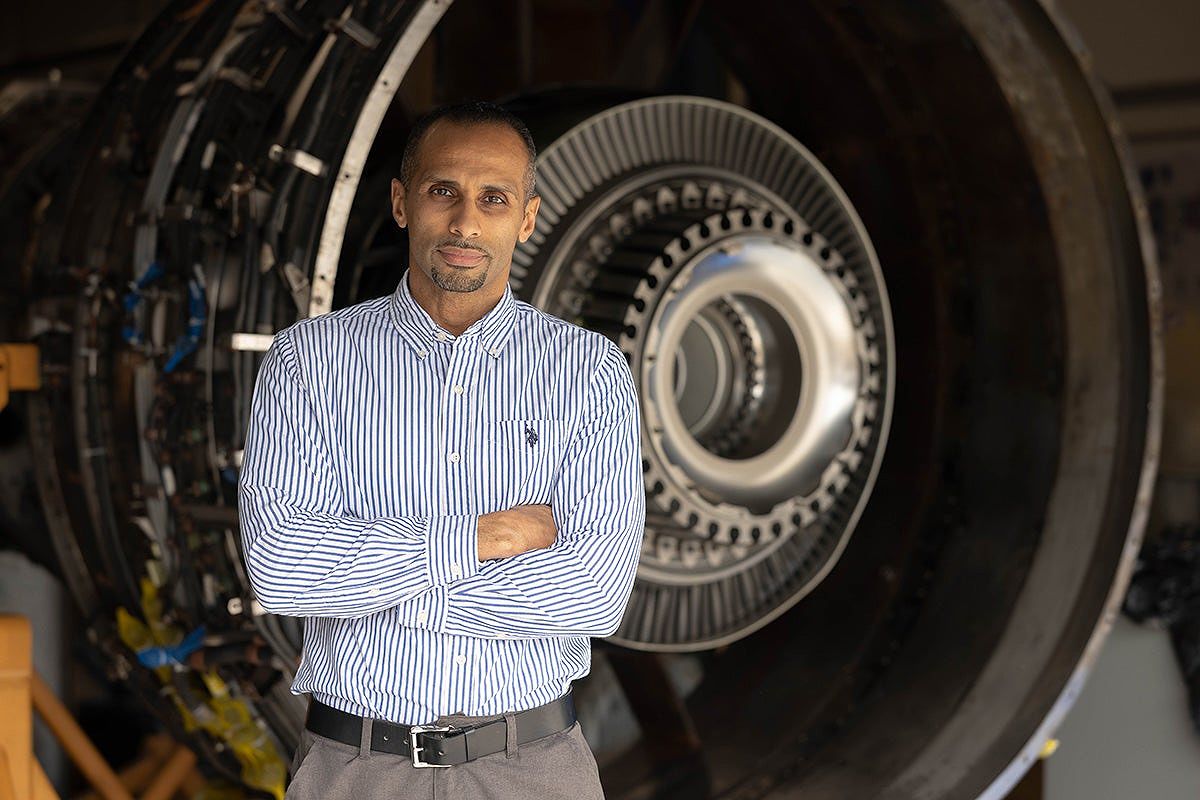Discover how the University of Central Florida (UCF) is leading the way in hypersonics and space propulsion research, revolutionizing air travel and advancing technology. Explore the substantial funding from the U.S. Department of Defense (DoD) supporting UCF's advancements and the construction of a state-of-the-art hypersonic testing facility. Learn about the potential applications of hypersonic propulsion and the groundbreaking achievements made by UCF, including the development of the first hypersonic rotating detonation rocket engine. Join UCF in shaping the future of hypersonics and space propulsion.
UCF Solidifies Global Leadership in Hypersonics and Space Propulsion Research
The University of Central Florida (UCF) is establishing itself as a frontrunner in hypersonics and space propulsion research, thanks to significant funding from the U.S. Department of Defense (DoD). With the support of this funding, Mechanical and Aerospace Engineering Professor Kareem Ahmed is making remarkable strides in hypersonics research.
Hypersonic propulsion has the potential to revolutionize air travel, enabling speeds of Mach 6 to 17, or over 4,600 to 13,000 miles per hour. Its applications extend to commercial and space travel as well. Recognizing the significance of this technology, the DoD has provided funding for Professor Ahmed's research, which includes the establishment of a hypersonic testing facility, flight experiments, and further advancements in the field.
UCF's progress in hypersonic propulsion is evident in the development of the first-ever hypersonic rotating detonation rocket engine. This engine could potentially reduce the travel time from New York to Los Angeles to less than 30 minutes. Additionally, the university has recently received DoD funding to construct a morphing hypersonic engine. These achievements solidify UCF's position as a major player in hypersonic propulsion.
Advancements in Hypersonic Technology
UCF's research efforts in hypersonic propulsion are supported by the U.S. Air Force Office of Scientific Research (AFOSR). One of their funded projects is the High-Hypersonic Enthalpy Facility (HiHYPER) for Hypersonic and Space Propulsion. This project aims to develop a mid-scale high-hypersonic enthalpy propulsion testing facility at UCF. The facility will contribute to the advancement of hypersonic technology by supporting research in hypersonic materials, aerodynamics, and propulsion.
Another project funded by AFOSR focuses on developing experimental hardware for a flight experiment to stabilize and investigate standing oblique detonation waves. This research aims to improve the efficiency of jet propulsion engines, reducing fuel consumption and emissions.
The Office of Naval Research is funding a project that explores and documents the evolution of spray and splash dynamics in flow-independent fuel injectors. These injectors are designed to deliver a consistent and precise amount of fuel, regardless of variations in fuel pressure. The research will enhance fuel control in Navy applications, leading to improved propulsion and power systems.
Leading the Way in Propulsion and Energy
Professor Kareem Ahmed, who joined UCF's Department of Mechanical and Aerospace Engineering in 2014, is spearheading the university's research in propulsion and energy. With his expertise in advanced engine programs and technologies, he has made significant contributions to the field. Ahmed is an associate fellow of the American Institute of Aeronautics and Astronautics and a faculty fellow of the U.S. Air Force Research Laboratory and Office of Naval Research.
The substantial funding from the DoD is a testament to UCF's status as a major player in hypersonic propulsion. With ongoing advancements and research projects, UCF is poised to make significant contributions to the future of hypersonics and space propulsion.

